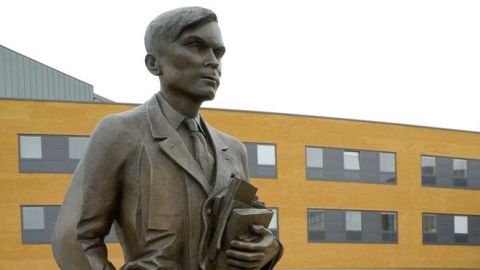2012: The Alan Turing Year

What’s the Big Idea?
He helped win World War II by cracking the German ENIGMA code but was persecuted by Great Britain for being gay. Today, his name is synonymous with the test he invented in 1950 for determining a machine’s ability to exhibit intelligent behavior.
June 23, 2012 will be the hundredth anniversary of Alan Turing’s birth, and a centenary celebration has been planned with events around the globe. It is perhaps most fitting that the Royal Mail will be issuing a commemorative stamp, a posthumous honor for one of England’s heroes who was so mistreated during his life.
What’s the Significance?
The Year of Turing also presents an interesting framework for us to gauge the progress of computing. When Turing invented his test in 1950, some predicted that so-called “Strong A.I.,” that is, artificial intelligence that matches or exceeds human intelligence, could be achieved in a few decades. Over sixty years later, every machine that has been tasked with simulating human intelligence has failed the so-called Turing Test.
And yet, scientists have become both impressed and alarmed by the tremendous leaps forward in A.I. capabilities in recent years. A.I. has been put into common use by financial institutions, and found promising applications in medical equipment, search technology, games and transportation systems. On the other hand, equal advances have been made in seemingly Frankensteinian creations such as computer viruses and predatory drones, which could prove dangerous if they have achieved what The New York Times called the “cockroach stage of machine intelligence.”
Image courtesy of Guy Erwood / Shutterstock.com
Follow Daniel Honan on Twitter @DanielHonan





